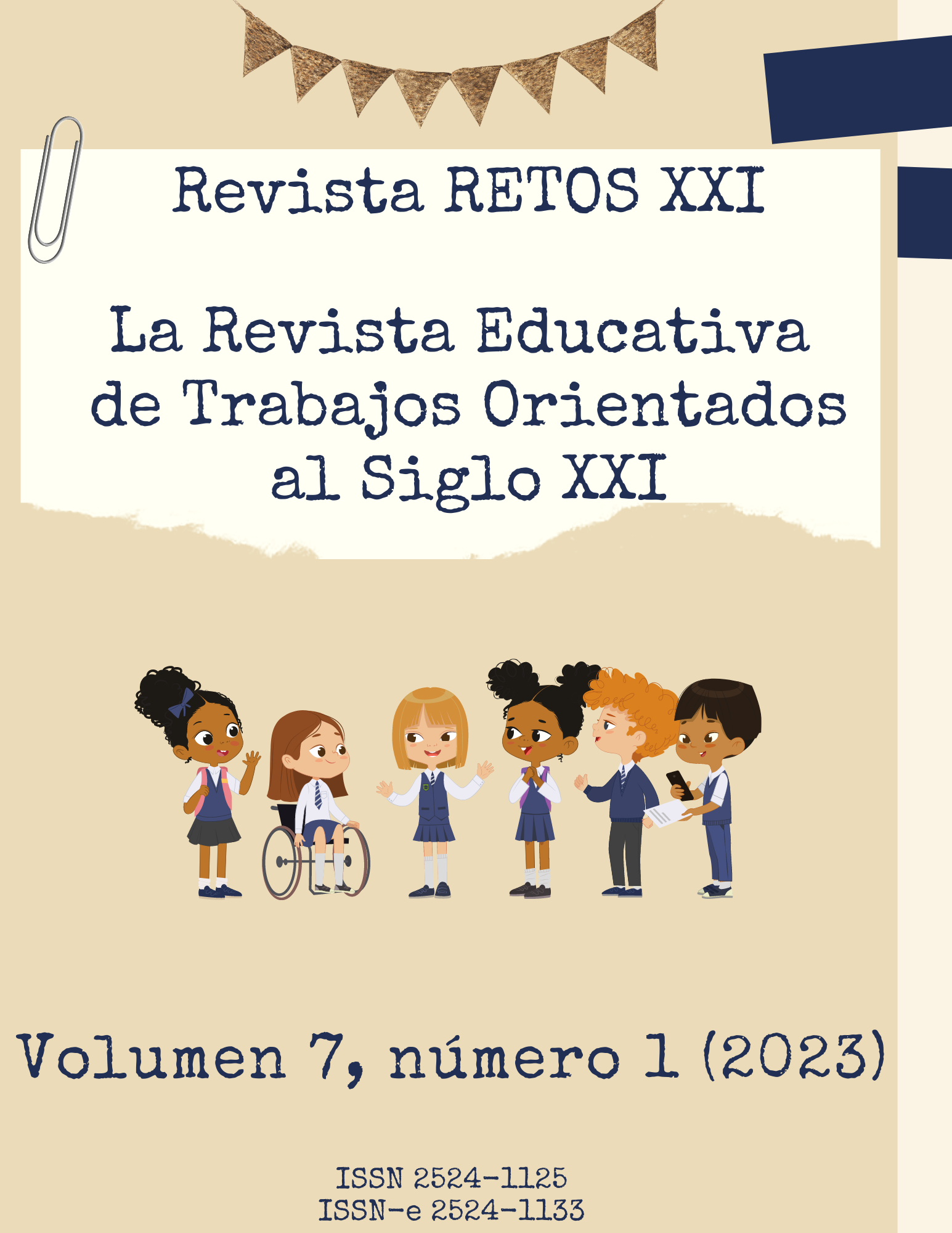La atención a la diversidad para la educación emocional desde la función orientadora del docente.
DOI:
https://doi.org/10.30827/retosxxi.7.2023.25347Palabras clave:
orientación educativa, educación emocionalResumen
El desarrollo de la orientación en las instituciones educativas es una prioridad para la labor del docente en su propósito de vincular la instrucción con la educación erigiéndose como un reto de la escuela actual que los docentes se entrenen en el desempeño exitoso de esta función, para descubrir o ratificar la necesidad de ayudar a sus educandos tomando como punto de partida la atención a las diferencias individuales. El artículo se enmarca en el tratamiento a la orientación desde el contexto escolar en lo individual y grupal, considerando las necesidades y potencialidades de los educandos que permita su formación integral. La investigación ofrece núcleos esenciales en el logro de tal aspiración y direcciona la atención de los docentes a las bases de la orientación educativa, en relación con los aprendizajes para la vida los que constituyen esenciales en la educación emocional. En el estudio realizado se emplean métodos del nivel teórico los que posibilitan la profundización y sistematización de prácticas educativas en otros contextos, el propósito de esta investigación es reflexionar desde el punto de vista teórico y metodológico sobre la atención a la diversidad para la educación emocional desde la función orientadora del docente.
Descargas
Citas
Bermúdez, R. y Machín, P. L. (2005). La orientación individual en contextos educativos. Pueblo y
Educación.
Collazo, D.B. y Puentes, A.M. (1992). La orientación en la actividad pedagógica. Pueblo y Educación.
Gardner, H. (1983). Frames of mind. The theory of multiple intelligences. Basic Books.
Gardner, H. (1983). Multiple intelligences: the theory in practice. Basic Books.
Gardner, H (1993). Mentes creativas. Paidós.
Goleman, D. (1995). Emotional intelligences. Española.
Goleman, D. (2007). Inteligencia Emocional en la Empresa. Española.
Güell, B.M. (2005). ¿Tengo Inteligencia Emocional? Española.
Madrid, L R. (2000). La autorregulación emocional como elemento central de la inteligencia
emocional. Morata.
Muñoz, P.M. (2009). Emociones sentimientos y necesidades. URSS
Andrés, P.A. (1998). Ciencia y política de la inteligencia en la sociedad actual. Biblioteca Nueva.
Andrés, P.A. (2000). Las inteligencias múltiples: la importancia de las diferencias individuales en el
rendimiento. Biblioteca Nueva.
Carroll, J.B. (1993). The Human abilities. Cambridge
Calviño, F. M. (2000). Orientación psicológica. Pueblo y Educación.
Colectivo de autores (2006). Orientación educativa Parte I. Pueblo y Educación.
Colectivo de autores (2010). Orientación educativa Parte II. Pueblo y Educación.
Gardner, H. (1998). A multiplicity of Intelligences. Scientific American.
Goleman D. (1996). Emotional intelligences II. Kairós, S.A.
Rico, M.P. (2003). La zona de desarrollo próximo. Pueblo y Educación.
Torroella, G. (2002). Aprender a vivir. Pueblo y Educación.
Torroella, G. (2005). Educación para el desarrollo humano.
Torroella, G. (2003) Aprender a convivir. Pueblo y Educación.
Publicado
Versiones
- 2023-05-03 (2)
- 2023-04-28 (1)
Cómo citar
Número
Sección
Licencia
Derechos de autor 2023 RETOS XXI

Esta obra está bajo una licencia internacional Creative Commons Atribución-NoComercial-CompartirIgual 4.0.












